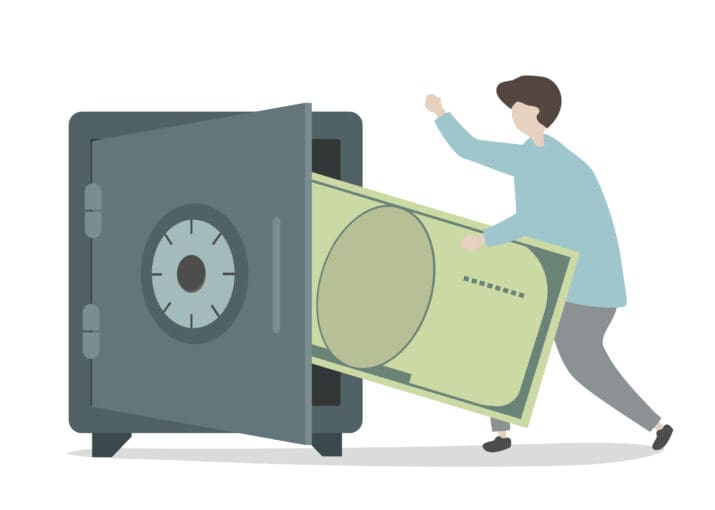If you’re just starting out with no credit history or limited credit history you can get a credit card often referred to as a starter credit card. Starter cards are designed to help you build credit history and can even be useful for rebuilding credit during Chapter 13 bankruptcy.
Choose the Right Starter Credit Card
Secured Credit Cards
Secured credit cards are a great starting point if you have no credit, poor credit, have a limited credit history, or are trying to rebuild your credit. This type of starter card requires a refundable security deposit, which usually determines your credit limit. This refundable security deposit acts as a safety net for the issuer, reducing their risk and making these cards more accessible. An example of a secured card is the Discover it® Secured Credit Card. With responsible use and by making your monthly payments on time, you can build your credit and potentially transition to an unsecured card over time. If you’ve never had a credit card before, do some research to understand what you should know before getting a credit card.
Student Credit Cards
Student credit cards are designed with college students in mind. Unlike a secured card, student cards do not need you to put down a security deposit. This type of starter credit card often comes with lower credit limits and higher interest rates than other cards. They also offer perks such as rewards for good grades and no annual fee. The Journey Student Rewards from Capital One is a great starter card that offers cash back rewards, no annual fee, CreditWise credit monitoring, and travel benefits.
Credit Cards for New Immigrants
If you are a new immigrant without a credit history in the United States, some credit card issuers offer cards that consider alternative data usually needed for most credit card applications. This can include income and bank account information, instead of relying solely on a traditional credit check. The Blue Cash Everyday Card from American Express is a good starter credit card for immigrants. It has a $0 annual fee, gives up to 3% cash back at U.S. supermarkets, and American Express can can use your credit history from other countries to support your application for a credit card. You may also be interested in the Capital One Venture Rewards card which has no foreign transaction fee.
Store Credit Cards
A store credit card can be a good starter card as they are often be easier to obtain than regular credit cards. They are typically limited to use at the issuing store or a group of affiliated stores. However, they often come with high interest rates, making it important to pay off your balance in full each month. An example of a store credit card is the Target RedCard™.
Credit Builder Loans
While not a credit card, a credit builder loan can be a useful tool for building credit. In this arrangement, you “borrow” money which is placed into a savings account. You then make payments over time, which are reported to the major credit bureaus, helping you build credit. Self is a company that offers credit builder loans.
No matter which type of card or loan you choose, the key to building credit is to make all of your payments on time and to keep your balance low relative to your credit limit. This responsible behavior will help you establish a strong credit history and set you up for financial success. When you submit your credit card application, be sure to follow these steps to increase your chances that your credit card application is approved.
Building Your Credit Score with a Starter Credit Card
Building a good credit score is a process that takes time and depends on a variety of factors. Here’s a general timeline and description of the process:
- Opening a Credit Account (Day 1): When you open your first credit account, such as a secured card or a credit builder loan, you begin to establish a credit history. However, you won’t have a credit score right away.
- After 6 Months: Most credit scoring models require at least six months of credit history to calculate a credit score. After six months of making on-time payments and keeping your credit utilization low, you should have a credit score. The exact score varies from person to person depending on their credit card activity.
- After 1-2 Years: With continued responsible credit use and on-time payments, your credit score should continue to rise. Paying your bills on time, keeping your credit utilization low, and maintaining a mix of credit types can all contribute to a good credit score.
- After 2+ Years: After a few years of responsible credit use, you could have a very good or even excellent credit score. However, remember that credit scores fluctuate based on your ongoing credit activity. Late payments, high balances, and other negative factors can cause your score to drop.
Can a Second Credit Card Help Build Credit?
Getting a second credit card can potentially help boost your credit score. You may want to consider applying for a second credit card after 6 months, but you should consider the pros and cons before making a decision.
Pros of Getting a Second Credit Card:
Cons of Getting a Second Credit Card:
Getting a second credit card can be beneficial for your credit score if managed responsibly. If you’re confident in your ability to manage multiple cards and pay off your balances in full each month, a second card could be a good idea. If not, it might be better to stick with one card until you’re more comfortable with managing credit.
Building a good credit score is a marathon, not a sprint. It takes consistent, responsible credit behavior over time to build and maintain a good credit score. A starter credit card is a good way to build your credit responsibly, and with less risk of you going into debt.
Frequently Asked Questions



